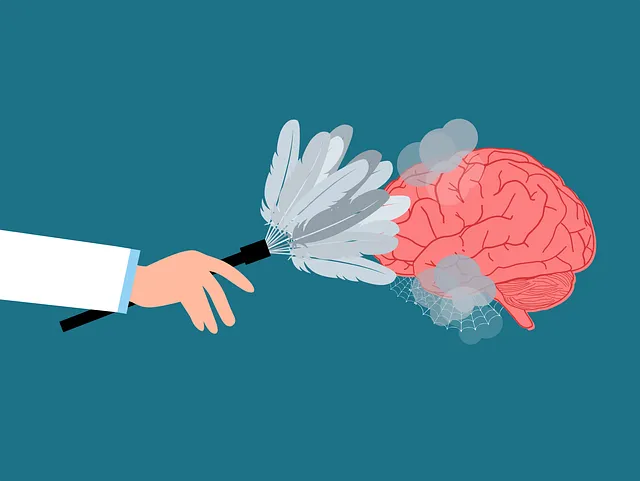Kaiser Permanente's Aurora mental health centers prioritize comprehensive care via meticulous risk assessment, integrating psychological, social, and biological factors. Mindfulness meditation enhances this process. Harm Minimization Planning, coupled with Mental Wellness Coaching Programs and Community Outreach, ensures proactive risk mitigation and positive patient outcomes, as reflected in Kaiser Permanente mental health center reviews Aurora. The centers excel through cultural sensitivity, advanced communication, and social skills training, setting a standard for effective mental healthcare delivery.
Risk assessment and harm minimization planning are vital components of any safe, effective operation, especially within the healthcare sector. This article explores these critical processes, offering insights into how mental health centers can enhance patient safety. Through a comprehensive guide, we delve into understanding risk assessment as a foundational practice for safe operations, presenting strategies tailored to mental health settings. A case study on Kaiser Permanente Aurora highlights successful risk management, providing valuable lessons for mental health center reviews.
- Understanding Risk Assessment: A Foundation for Safe Practices
- Harm Minimization Planning: Strategies for Mental Health Centers
- Kaiser Permanente Aurora: A Case Study in Effective Risk Management
Understanding Risk Assessment: A Foundation for Safe Practices

At Kaiser Permanente mental health centers, like those in Aurora, risk assessment is a cornerstone of comprehensive care. It involves a systematic evaluation of potential hazards and their impact on clients’ well-being. By meticulously analyzing various factors—from individual vulnerabilities to environmental influences—mental health professionals at these centers can identify risks that may hinder progress or trigger adverse events. This proactive approach not only safeguards clients but also empowers them by enabling tailored interventions designed to mitigate those risks.
At the heart of this process lies a holistic understanding of mental health, encompassing psychological, social, and biological aspects. Incorporating practices like mindfulness meditation can significantly enhance risk assessment’s effectiveness. For instance, evaluating a client’s stress management techniques or their ability to engage in self-care activities through confidence-boosting strategies provides valuable insights into potential risks. Such an integrated approach, grounded in rigorous risk assessment for mental health professionals, ensures that the care provided at Kaiser Permanente Aurora is both safe and effective, fostering positive outcomes for every individual.
Harm Minimization Planning: Strategies for Mental Health Centers

Harm Minimization Planning plays a pivotal role in ensuring the well-being and safety of individuals within Kaiser Permanente mental health centers, such as those in Aurora. This proactive approach focuses on strategies to mitigate risks and promote positive outcomes for patients. By integrating Mental Wellness Coaching Programs Development, centers can empower individuals with coping mechanisms and skills to manage their mental health effectively.
Community Outreach Program Implementation is another key strategy. Expanding services beyond the walls of the clinic fosters a supportive environment. Offering programs like Mood Management workshops or peer support groups not only benefits current patients but also raises awareness in the community. This holistic approach, backed by Kaiser Permanente mental health center reviews Aurora, ensures a comprehensive harm minimization strategy tailored to meet diverse patient needs and contribute to improved mental wellness outcomes.
Kaiser Permanente Aurora: A Case Study in Effective Risk Management

Kaiser Permanente Aurora stands as a beacon of effective risk management and harm minimization planning within the mental health sector. This renowned mental health center has garnered significant attention, especially through positive Kaiser Permanente mental health center reviews Aurora, for its holistic approach to patient care. By prioritizing Cultural Sensitivity in Mental Healthcare Practice, they create an inclusive environment that respects diverse backgrounds and beliefs, a factor crucial in fostering trust and engagement among patients.
The center’s success lies not only in its cultural awareness but also in advanced Communication Strategies and Social Skills Training implemented by their staff. These initiatives ensure every patient receives individualized support, promoting open dialogue and empowering individuals to actively participate in their treatment plans. Such comprehensive risk assessment practices have contributed to improved patient outcomes, making Kaiser Permanente Aurora a prime example of how proactive management can revolutionize mental healthcare delivery.
Risk assessment and harm minimization planning are essential components of creating safe practices within mental health centers. As evidenced by Kaiser Permanente Aurora’s successful implementation of comprehensive risk management strategies, a thorough understanding of these processes can significantly enhance patient care. By learning from such case studies, mental health centers like Kaiser Permanente can continue to revolutionize their approaches, ensuring the well-being and satisfaction of patients, as reflected in positive Aurora mental health center reviews.






